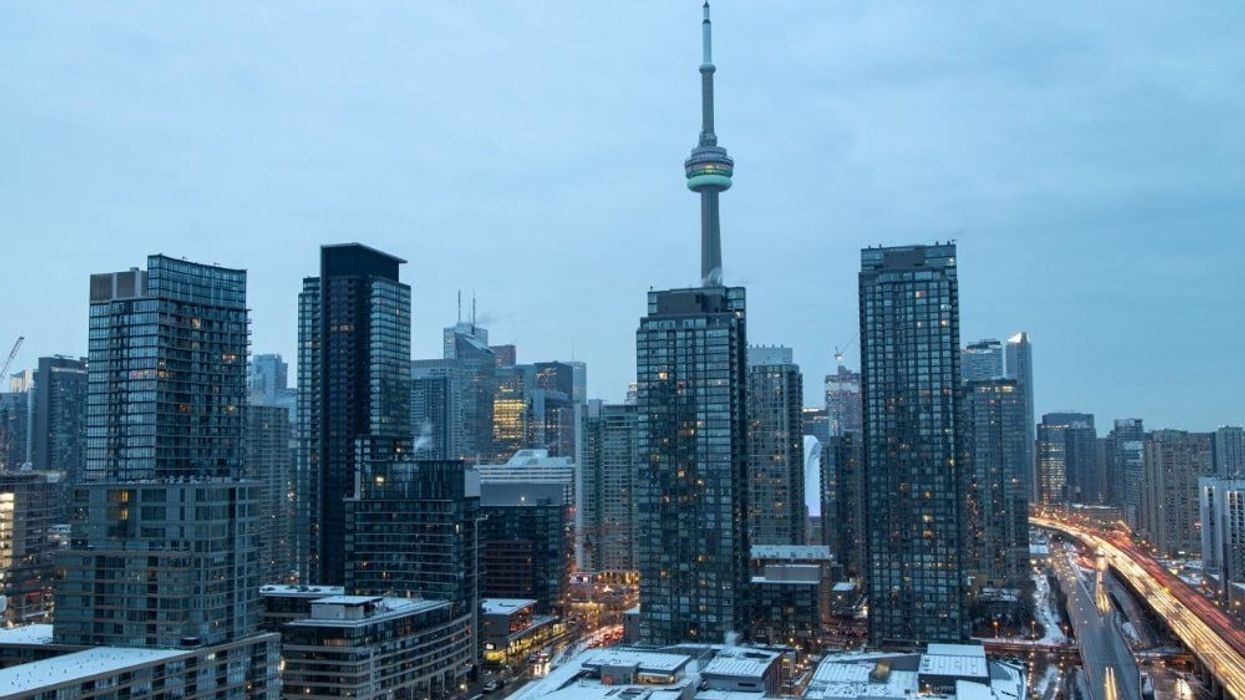After a year of record-breaking price growth, Canada's rental market is showing slight signs of moderating. But rent prices remain excessively high in major markets.
According to the latest National Rent Report from Rentals.ca and Urbanation, the average asking rent for all property types in Canada hit $1,984 in February, a 2% decline since November. Despite representing a 9.7% annual increase, it's the first time since June 2022 that average rents have not risen by double digits. However, the figure it still up 17.5% from 2021 levels, and is 11.1% above pre-pandemic figures.
"The rental market experienced a pullback over the past three months following record-breaking rent growth in 2022," said Shaun Hildebrand, president of Urbanation. "The recent slowing can be related to high rental costs impacting affordability and an increase in new supply from apartment completions. However, several key markets experiencing high demand continued to see rents trend higher last month."
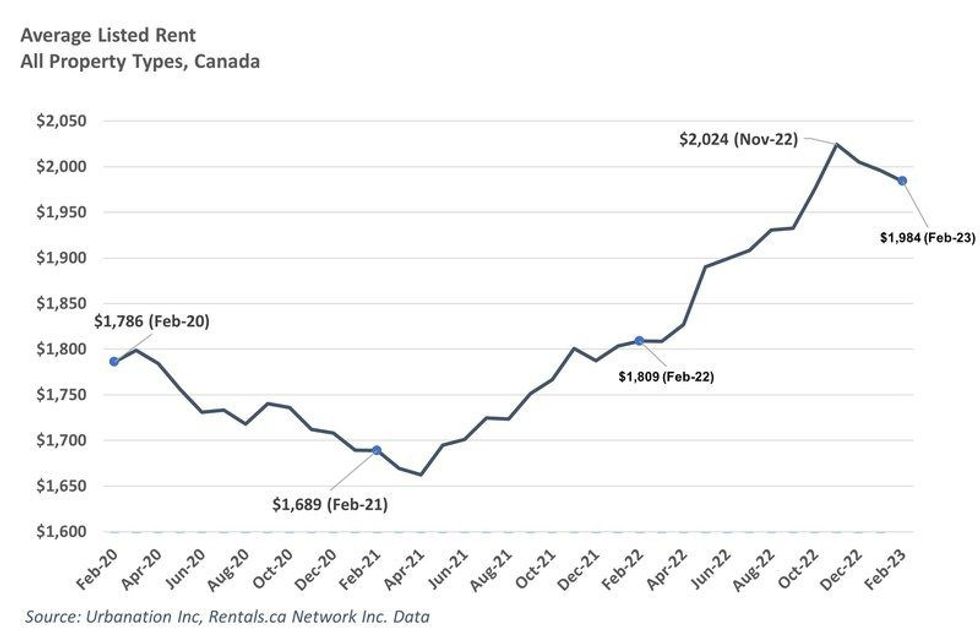
In Toronto, the average rent for a one-bedroom hit $2,501 in February, an annual increase of 21.5%. A two-bedroom in the city now costs $3,314 per month, a year-over-year increase of 19.4%
The average rent for a one-bedroom in Vancouver rose 15.3% annually, to $2,640, while the average rent for a two-bedroom was up 22.5% year over year, to $3,632. The city's sky-high rents made it the most expensive market in Canada.
Of the 35 cities included in the report, Langley saw the greatest annual increase amongst one-bedroom units in February, with prices up 25.3% to $1,880, while Kitchener experienced the largest price growth for two-bedroom units, which were up 25.5% annually to $2,406.
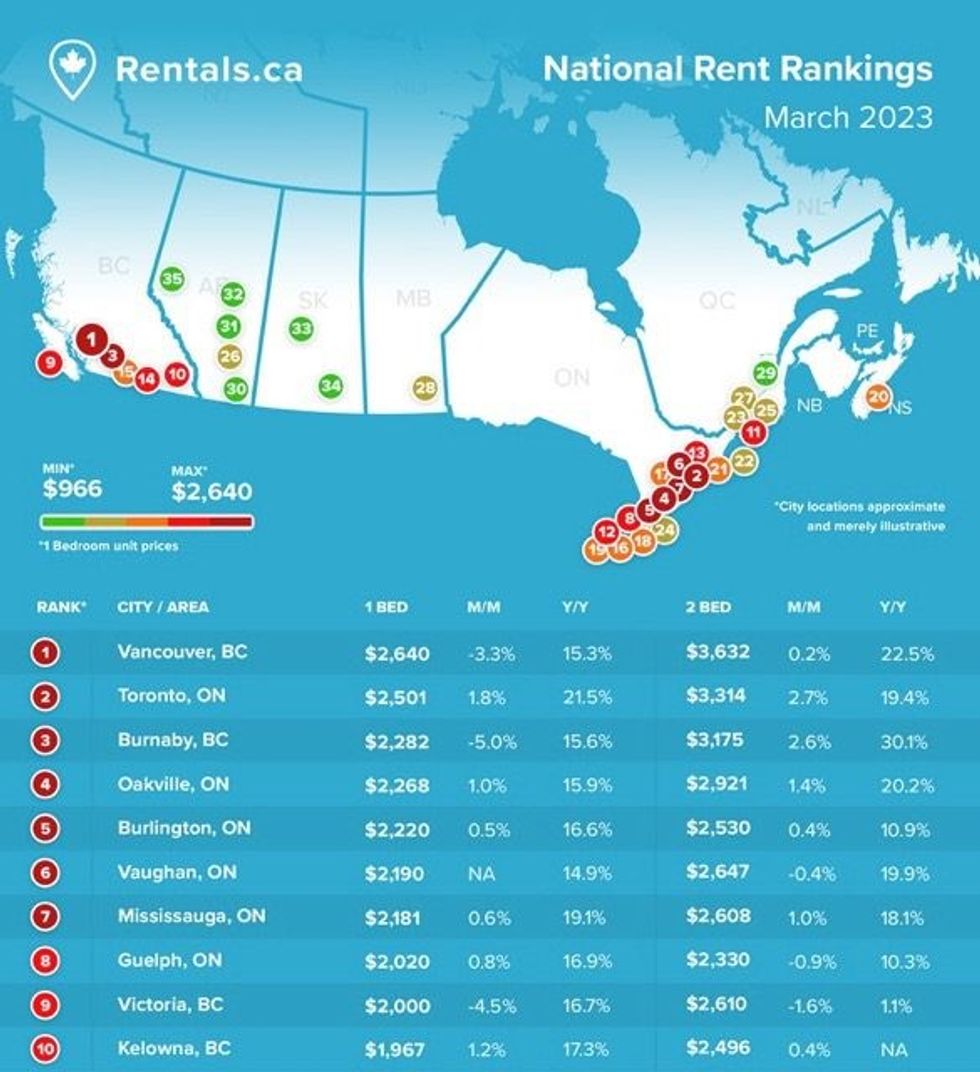
Amongst purpose-built and condominium rental apartments, Ontario had the highest annual rent inflation in February, at 16.2%. Alberta and British Columbia followed, with rents rising 14.5% and 11.4% year over year, respectively. Over the last three months, though, Quebec experienced the highest rent increase, at 2.9%. Ontario experienced a 1% increase, while all other provinces saw rents fall over the same period.
Nationally, the average asking rent for purpose-built and condo apartments was up 9.1% annually in February to $1,908.
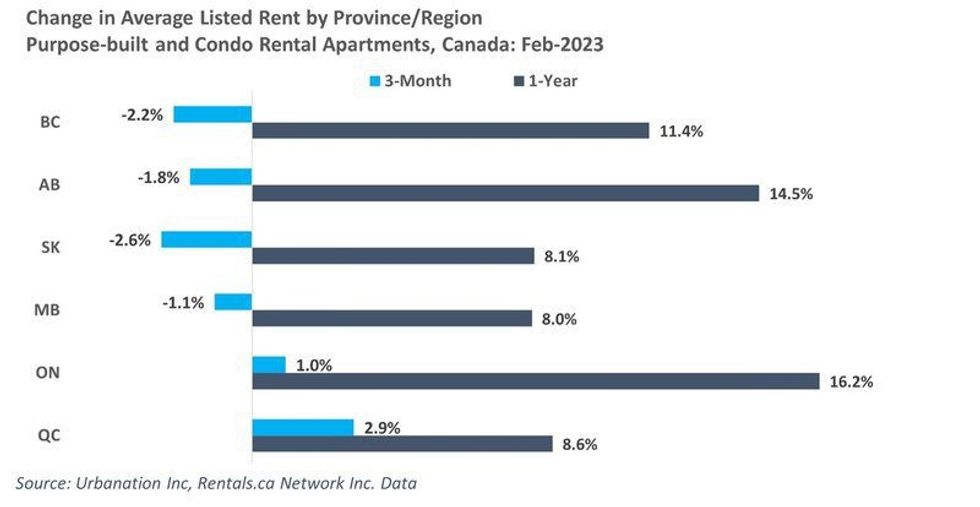
Although prices remain below the national average, Calgary has experienced the fastest rent growth of Canada's large markets. Average asking rents in the city hit $1,862 in February, a three-month increase of 3.8% and an annual jump of 28.1%.
On a yearly basis, Toronto experienced the second-fastest rent growth amongst large markets, at 22.8%. Rents reached an average of $2,838 in February. Average rents for purpose-built and condo apartments in Vancouver were up 19% annually, to $3,120.
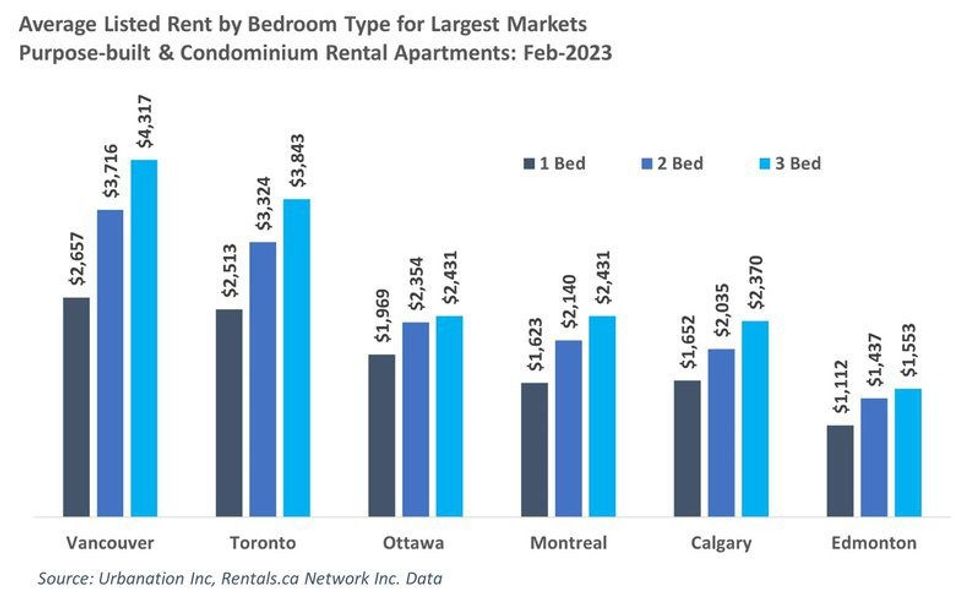
Amongst mid-sized rental markets, 12 of the most expensive cities were located in Metro Vancouver and the Greater Toronto Area in February, including Burnaby($2,902), Coquitlam ($2,726), Oakville ($2,579), and Vaughan ($2,479).
Of the 10 mid-sized markets with the fastest annual rent growth, eight were in Southwestern Ontario. Brampton led the rise, with a 30.1% yearly increase, followed by Kitchener (28.2%) and Scarborough (28.1%).
